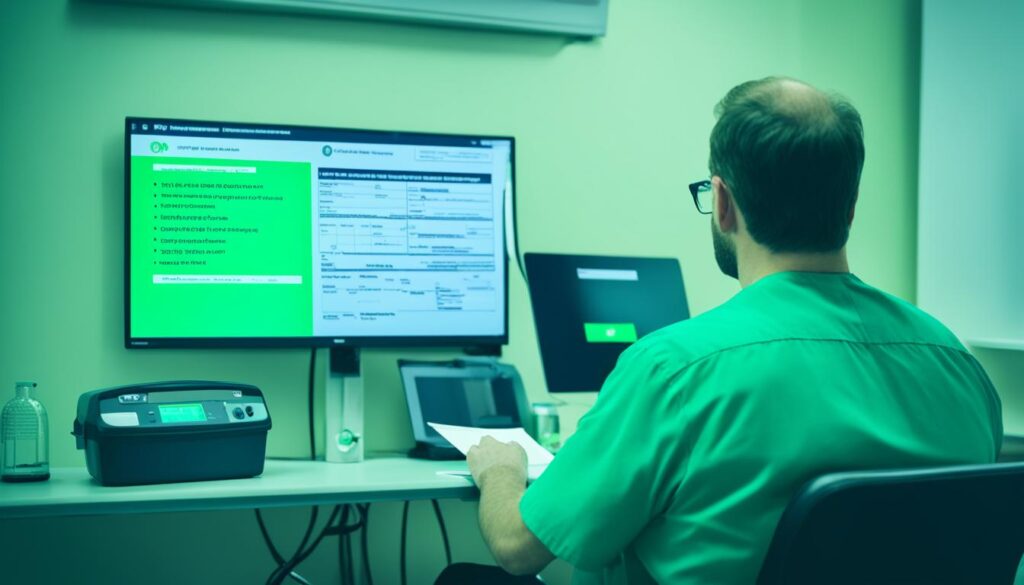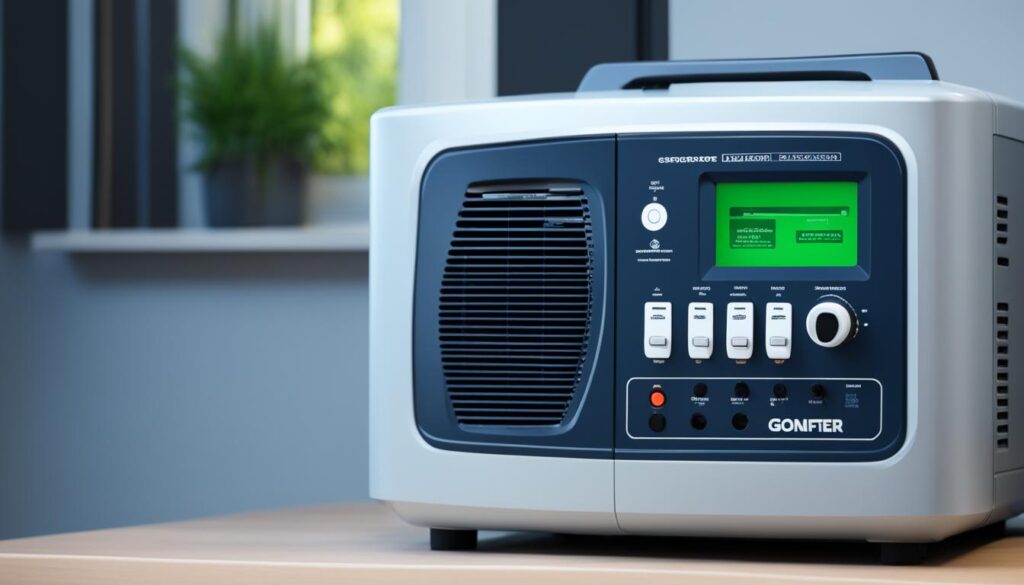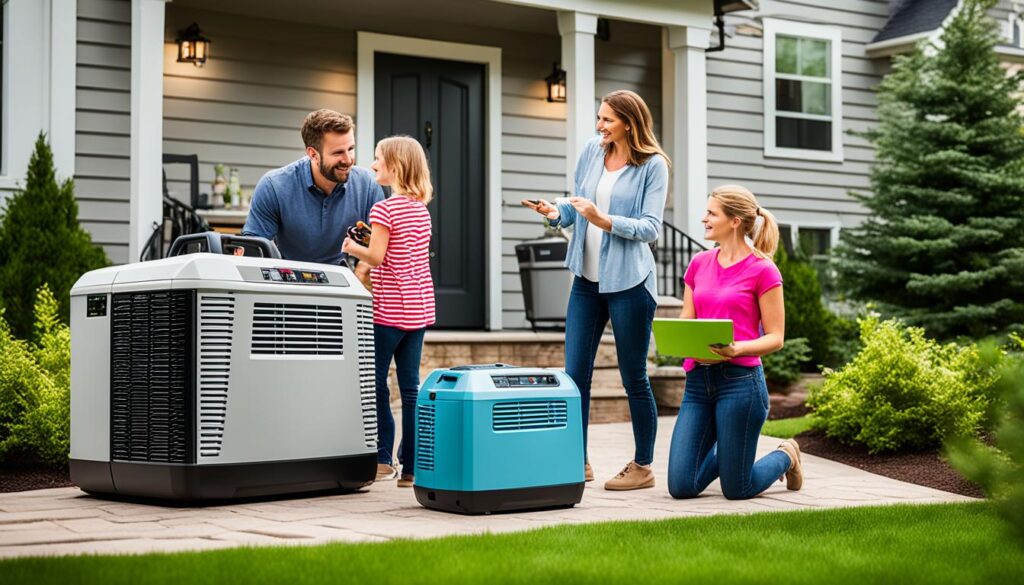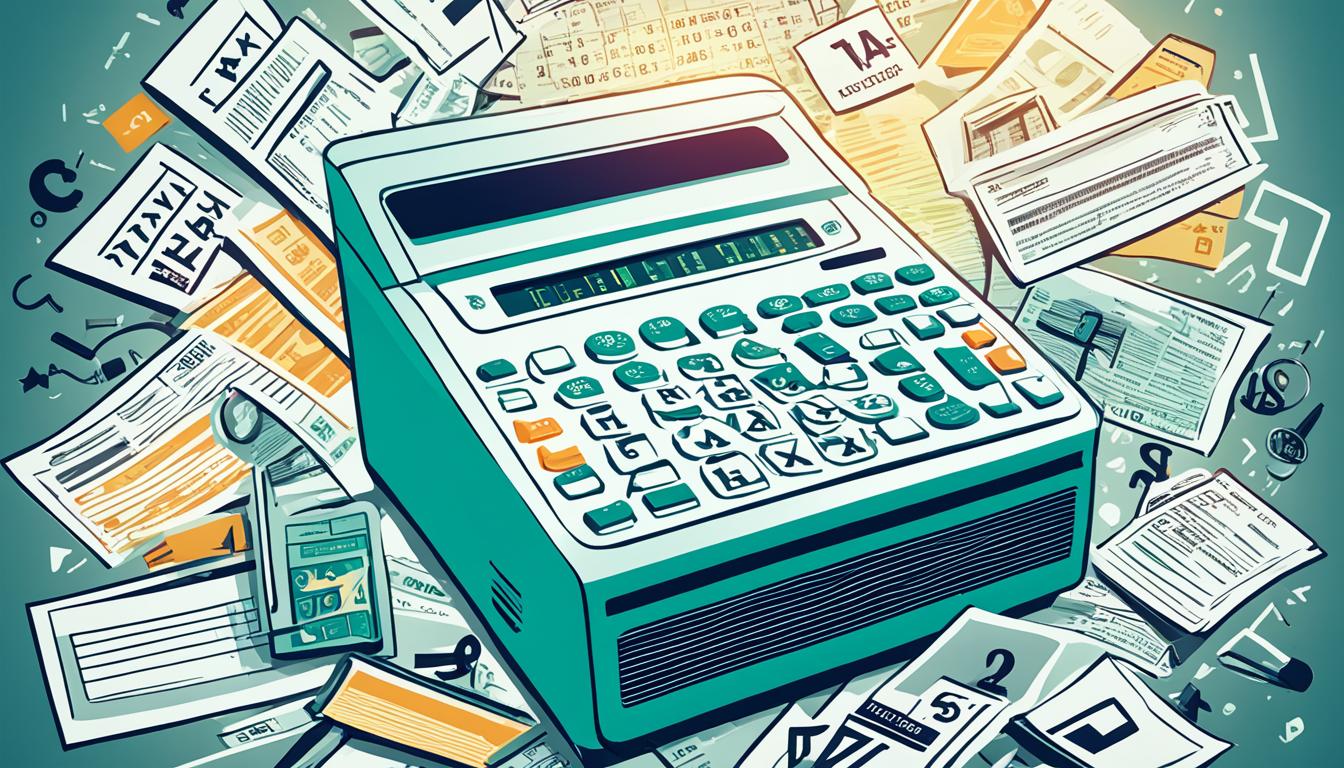Imagine this: It’s a stormy night, and the power goes out in your neighborhood. As the darkness envelops your home, you realize you’re completely reliant on candles and flashlights. Your fridge shuts off, and your food starts to spoil. You desperately search for a solution to this recurring problem.
You’ve heard that investing in a generator can provide peace of mind during power outages. Not only does it ensure that your essential appliances keep running, but it can also save you money in the long run. That’s right, generators can be tax deductible.
Knowing whether your generator qualifies for tax benefits and deductions can help you make an informed decision when purchasing one. In this article, we’ll explore the different scenarios in which generators can be tax deductible, providing you with the knowledge and confidence to take advantage of potential savings.
- There are several ways in which generators can be tax deductible, such as business expense deductions, medical equipment deductions, disaster loss deductions, and federal energy tax credits.
- Keeping accurate records of your generator usage and consulting with a tax professional are crucial for understanding and complying with the most current tax laws.
- The specific eligibility criteria and documentation requirements for generator tax deductions vary depending on the purpose and use of the generator.
- Research the guidelines for energy efficiency and consult with a tax professional to determine if your generator qualifies for federal energy tax credits.
- Ensuring optimal functionality for your home requires choosing the right generator size, fuel type, and features based on your power needs.
Business Expense Deductions for Generators
If you’re using your generator for business purposes, you’re in luck! This means you may be eligible for valuable business expense deductions. That’s right, the cost to operate your generator as well as the cost of the generator itself can be considered tax deductible.
To take advantage of these deductions, you need to itemize your deductions on your tax return. Make sure to gather all the necessary documentation to support the business use of your generator. It’s important to keep detailed records of how the generator is used for business purposes.
When filing your tax forms, report the cost of the generator as a business expense. By doing so, you can reduce your taxable income and ultimately lower your overall tax liability. It’s a win-win situation for your business!
Remember, to ensure you’re following the most current tax laws and guidelines, it’s always a good idea to consult with a tax professional who can provide expert advice tailored to your specific situation.
| Business Expense Deductions for Generators | Tax Benefits |
|---|---|
| Cost to operate the generator | Tax deductible |
| Cost of the generator | Tax deductible |
Additional Tips for Maximizing Your Business Expense Deductions
- Keep accurate records of the business use of your generator
- Include relevant receipts and invoices as proof of purchase and expenses
- Determine the percentage of business use and only deduct that portion
By taking advantage of business expense deductions for generators, you can not only benefit from the reliable backup power provided by your generator but also enjoy significant tax savings for your business.
Medical Equipment Deductions for Generators
When it comes to powering essential medical equipment, generators play a crucial role. If you rely on a generator to provide electricity for devices like dialysis machines, oxygen concentrators, or CPAP machines, you may be eligible for valuable tax benefits.
Under certain circumstances, you can claim a medical equipment deduction for the cost of your generator as a medical expense on your tax return. This deduction acknowledges the importance of reliable power for individuals with medical conditions that require electrically powered devices.
Eligibility Requirements
While the entire cost of the generator may not be deductible, a portion of it can be claimed as a medical expense deduction. To qualify for this deduction, you need to meet the following criteria:
- Provide a statement from your physician that explains your medical condition and the necessity of electrically powered medical devices
- Document the cost of the generator and its specific use for medical purposes
Be sure to consult with a tax professional and keep accurate records to ensure compliance with the latest tax laws and guidelines.

Claiming the Deduction
When filing your tax return, you can include the cost of the generator as a medical expense deduction. This deduction reduces your taxable income, potentially lowering your overall tax liability. By claiming the deduction, you can recoup a portion of the money you invested in purchasing and maintaining the generator.
Remember to have all the necessary documentation readily available, including the physician’s statement and proof of expenses related to the generator’s use for medical purposes. These records are vital in case of an audit or any questions from the IRS.
Consult a Tax Professional
While the medical equipment deduction for generators can provide significant tax benefits, navigating the complexities of the tax code can be challenging. It’s always wise to consult with a qualified tax professional who specializes in medical expense deductions and can provide personalized advice.
By taking advantage of the medical equipment deduction, you not only ensure reliable power for your crucial medical devices but also alleviate some of the financial burdens associated with maintaining and powering them.
Disaster Loss Deductions for Generators
When disaster strikes and power outages occur, having a backup generator can be a lifesaver. Not only does it provide you with essential electricity during these challenging times, but it may also offer some tax benefits. If you’ve invested in a generator for backup power during natural disasters and outages, you may be eligible for disaster loss deductions, allowing you to deduct the cost of the generator as a loss on your tax return.
To qualify for these deductions, it’s important that you use your generator exclusively for backup power during emergencies. This means that the generator should not be used for any other purposes, such as powering non-essential appliances or devices. By keeping your generator dedicated solely for backup power, you can maximize your tax benefits.
Additionally, if your generator is damaged or destroyed in a federally-declared disaster, you may be able to deduct the cost of the generator as a loss. This deduction can provide crucial financial relief during challenging times. However, it’s important to ensure that you have proper documentation and evidence to support your claims, such as photographs of the damaged generator and any applicable insurance documentation.
Furthermore, in situations where your generator is not damaged or destroyed, you can still benefit from tax deductions by depreciating the cost of the generator over several years as a capital expense. This allows you to gradually deduct a portion of the generator’s cost over time, providing ongoing tax benefits for your investment.
Example of Disaster Loss Deductions
| Generator Cost | Percentage of Operating Costs | Total Disaster Loss Deductions |
|---|---|---|
| $5,000 | 25% | $1,250 |
| $10,000 | 50% | $5,000 |
| $15,000 | 75% | $11,250 |
As shown in the table above, the total disaster loss deductions depend on the generator’s cost and the percentage of operating costs that can be deducted. Consider consulting with a tax professional to determine the specific deductions applicable to your situation and to ensure you are following the proper tax guidelines.
Investing in a generator for backup power during natural disasters brings not only peace of mind but also potential tax benefits. By understanding and taking advantage of disaster loss deductions, you can offset the cost of the generator and enhance your overall financial well-being. Remember to keep accurate records and consult with a tax professional for personalized advice tailored to your specific circumstances.
Federal Energy Tax Credits for Generators
If you’re considering installing a generator in your home, you’ll be pleased to know that there are potential tax benefits available to you. One such benefit is the opportunity to take advantage of federal energy tax credits, which can help offset the cost of your generator. These tax credits are available for generators that meet specific criteria set by the government.
Generators that qualify for federal energy tax credits are those that generate electricity for your home using renewable energy sources such as solar, wind, geothermal, or fuel cell energy. By harnessing these sustainable energy options, you not only reduce your carbon footprint but also become eligible for tax savings.
It’s essential to research the guidelines for energy efficiency and consult with a tax professional to determine if your generator qualifies for federal energy tax credits. They will help you navigate the complex regulations and ensure you meet all the necessary requirements. By doing so, you can take full advantage of the tax benefits and maximize your savings.
Understanding Federal Energy Tax Credits
Federal energy tax credits are incentives provided by the government to promote the use of renewable energy sources and reduce reliance on fossil fuels. These credits enable homeowners to recoup a portion of the costs associated with installing renewable energy generators. By utilizing these tax credits, you not only make a positive impact on the environment but also enjoy financial benefits.
The exact amount of the tax credit varies based on factors such as the generator’s efficiency, capacity, and installation costs. It’s important to keep in mind that tax credits are subject to expiration dates and capacity limits. Therefore, it’s crucial to verify the current eligibility criteria and stay informed of any changes in tax laws that may impact your qualification for the credits.
Here is an example of how federal energy tax credits can significantly impact the total cost of your generator installation:
| Generator Cost | Federal Energy Tax Credit | Total Cost After Tax Credit |
|---|---|---|
| $10,000 | $3,000 | $7,000 |
| $15,000 | $4,500 | $10,500 |
| $20,000 | $6,000 | $14,000 |
As demonstrated in the table above, federal energy tax credits can significantly reduce the overall cost of generator installation. These savings make investing in a generator more accessible and economically advantageous for homeowners.
Keep in mind that claiming these tax credits requires meticulous record-keeping and proper documentation. Consult with a tax professional to ensure you meet all the necessary requirements and maximize your tax benefits.
Home Office Deductions for Generators
If you operate a home-based business or work from home, you can take advantage of home office deductions to save on your taxes. And guess what? Your generator may qualify as a deductible expense!
When your generator is used to power equipment for your business, you can deduct its cost as a business asset. This means you can claim depreciation for your generator over multiple years, resulting in tax savings for the initial purchase.
This deduction applies to home-based businesses that rely on generators for power. So, if your business depends on uninterrupted electrical supply, like online retail, IT services, or telecommunication, you’re in luck!
To ensure you benefit fully from these tax savings, it’s essential to comply with federal, state, and local laws regarding home office deductions. Consult with a tax professional to navigate the intricate details and complexities of tax regulations.
Now, let’s take a look at a sample breakdown of the potential tax savings you can enjoy when deducting your generator as a business asset:
<!– –>
–>
Tax Savings Example: Home Office Deductions
| Generator Cost: | $5,000 |
|---|---|
| Depreciation Period: | 5 years |
| Annual Depreciation Value: | $1,000 |
| Effective Tax Rate: | 25% |
| Tax Savings per Year: | $250 |
| Total Tax Savings over 5 years: | $1,250 |
As you can see, deducting your generator as a business asset can result in significant tax savings over time. This frees up capital that you can reinvest in your business, fueling growth and expansion.
Remember, maintaining accurate records and consulting with a tax professional are crucial for maximizing your home office deductions and ensuring compliance with the ever-evolving tax laws.
Choosing the Right Generator for Your Home
When it comes to selecting a generator for your home, you want to make sure you’re making the right choice. Consider the following factors to ensure you choose a generator that meets your specific needs:
Determining Power Needs
Before purchasing a generator, take stock of the appliances and devices that you’ll need to keep running during a power outage. Calculate their power requirements to determine the size of generator you’ll need. This will help ensure that your generator can handle the load and keep everything running smoothly.
Selecting Fuel Type
The next decision you’ll need to make is the fuel type for your generator. There are a few options to choose from, including propane, natural gas, and gasoline. Consider factors such as availability, convenience, and cost when selecting the fuel type that best suits your needs.
Generator Features
When comparing different generators, pay attention to the features they offer. Look for options like automatic shut-off and transfer switches, which can enhance convenience and ensure seamless operation. Additional features to consider include noise reduction technology, remote monitoring capabilities, and fuel efficiency.
By carefully considering your power needs, fuel type, and desired features, you can select a generator that provides reliable backup power and peace of mind.

| Generator Size | Fuel Type | Features |
|---|---|---|
| Small | Propane | Noise reduction technology |
| Medium | Natural gas | Automatic shut-off and transfer switches |
| Large | Gasoline | Remote monitoring capabilities |
Get Expert Generator Installation and Service
When it comes to generator installation, service, and maintenance, why settle for anything less than the best? It’s crucial to rely on professionals who can provide the expertise you need to ensure your backup power solutions are reliable and efficient.
At Jaffe Electric, we specialize in generator installation and offer professional generator services that you can trust. With over 35 years of experience in the industry, we have the knowledge and skill to assist you in choosing the perfect generator for your home and ensure a seamless installation process.
Our team of experts understands the importance of generator maintenance and the role it plays in keeping your backup power system functioning optimally. We offer regular service and maintenance plans that include thorough inspections, routine maintenance tasks, and prompt repairs to address any issues that may arise.
If you reside in Maryland, Northern Virginia, or the Washington, DC area, don’t hesitate to reach out to Jaffe Electric for all your generator needs. Whether you require installation, service, or ongoing maintenance, we are here to provide top-notch solutions that meet your backup power requirements. Trust us for professional generator installation, service, and maintenance that you can rely on.








